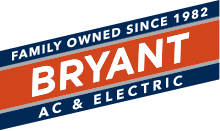Electricity is a staple in most homes today, and our reliance on it means that it’s important to learn how to handle it safely. Unfortunately, electrical fires and shocks aren’t as rare as you might think, but the good news is that most of them are completely preventable. By keeping a few basic ideas in mind, you can safeguard your home from electrical hazards and still enjoy helpful appliances and beautiful light fixtures!
- WaterMost people know that water and electricity don’t mix, and yet many of us end up reaching for the hair dryer or electric razor after a shower as our hands are still wet. Do not touch electrical outlets or appliances with wet hands, and never reach into water to pull out an appliance that’s plugged in. Be very careful about outlets and electronics near water, including swimming pools. Any radios, TVs, phones, curling irons, hair dryers, radiators, lamps, and cords should be kept away from sinks, bathtubs, and pools filled with water. Completely dry hands and feet before touching electronics.
- Extension CordsAlthough they can be very helpful, do not use extension cords for a long period of time. They are designed for temporary applications, so unplug and safely store them between each use. Do not run extension cords through ceilings or walls, as it may cause them to overheat which can cause electrical fires. The Electrical Safety Foundation International (ESFI) reports that improper use of extension cords causes 3,300 residential fires each year. If you’re constantly needing a longer cord to plug in an appliance, you’re probably better off installing a new outlet.
- Curious Children and PetsIf you look around your home or office, you’ll notice that most outlets are located near the ground; this makes them convenient for plugging in electronics, but it also places them at a height accessible to children and animals. This doesn’t mean you have to move all your outlets, but there are a few simple changes you can make to keep your home and loved ones safe. Place plastic covers over outlets to prevent children from placing fingers or objects into the sockets. Plug-in covers are easy to find in any hardware store. Also make sure to keep loose cords away from pets, who may chew on them. You don’t need to cover them (this can actually lead to overheating) but securing cords or taping them down can prevent pets from playing with them.
- Damaged Wires and CordsNever use cords that are corroded, melted, frayed, or have turned black. If a cord’s outer sheathing is torn or is exposing the wires within, you run a risk of shock, burn, or electrical fire. To prevent cord tears, always unplug appliances and electronics by pulling on the plug itself, not the cord. Additionally, do not try to “fix” run-down cords by taping the tears; just replace them or have a licensed electrician look at them if you’re unsure. Dealing with faulty cords is a tricky process that is best handled by a qualified professional.
- Broken Smoke AlarmsYour smoke alarms are one of the most important safety features in your home, but they’re useless if their batteries are dead. The National Fire Protection Association (NFPA) reports that approximately two-thirds of all home fire deaths occur in homes without working smoke alarms. With a statistic like this, it’s tough to argue against installing functional smoke alarms. Ideally, alarms should be placed in each bedroom/sleeping area and on the floor of every home. Check to make sure they’re working each month by pressing the “TEST” button located on the alarm. If your alarm is sounding off a single “beep” at periodic intervals (versus a constant beeping that indicates smoke detection), that means the batteries are failing and need to be changed immediately.
Does one of these issues sound familiar to you? For residential and commercial electrical services in the Austin area, call Bryant Electric Service today!


